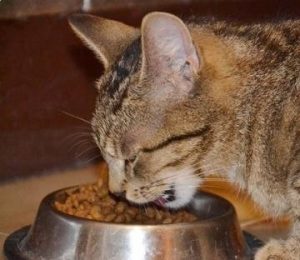Cats, like humans and other animals, have specific dietary restrictions. Here is a list of foods that are dangerous for cats, along with the reasons why they should be avoided:
Forbidden Foods and Their Dangers
-
Spicy foods: Including pepper, mustard, and chili oil. These can cause severe gastrointestinal upset in cats, leading to vomiting and diarrhea.
-
Fatty foods: Foods with high fat content can lead to pancreatitis, a serious and painful condition affecting the pancreas.
-
Extremely hot or cold foods: A cat’s tongue is sensitive, and their body may reject food that is too hot or too cold. For Maine Coons, this is especially important to remember.
-
Animal viscera: While rich in vitamin A, excessive consumption can harm a cat’s joints and bones.
-
Onions: They can destroy a cat’s red blood cells, leading to anemia and even death in severe cases.
-
Seafood: Such as octopus and squid. These can cause indigestion, vomiting, and may be life – threatening in serious cases.
-
Cookies and sweets: These are high in sugar and can lead to tooth decay in cats.
-
Chicken bones and fish bones: These are difficult for cats to digest and can injure their gastrointestinal tract.
Balanced Nutrition for Cats
Cats are obligate carnivores. Their diet should primarily consist of meat and fish, which are high – phosphorus foods rich in animal protein. However, a diet solely based on these can lead to calcium deficiency. To prevent constipation, you can occasionally feed your cat vegetables like spinach.
The ideal cat food should contain a variety of nutrients, including vitamins, phosphorus, potassium, calcium, amino acids, and proteins. Cat food should be lightly seasoned. Unlike humans, cats have different dietary requirements, and we should not impose our own food preferences on them.
Additional Tips for Cat Owners
Cats have unique nutritional needs. High – quality commercial cat food is formulated to meet these requirements. When choosing food for your cat, look for products that list meat or fish as the primary ingredient. Avoid feeding your cat table scraps, as these are often too rich or seasoned. Remember that a balanced diet is key to your cat’s health. If you’re ever unsure about a particular food, consult with your veterinarian. They can provide guidance tailored to your cat’s specific needs and help ensure your feline friend stays healthy and happy.

